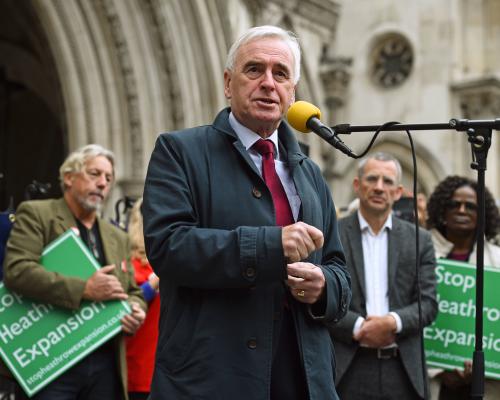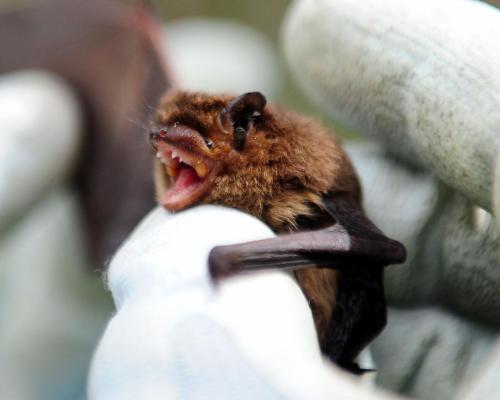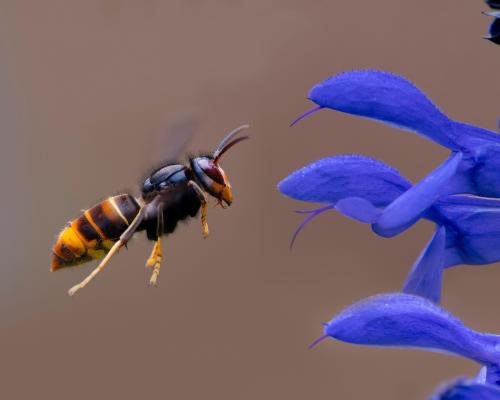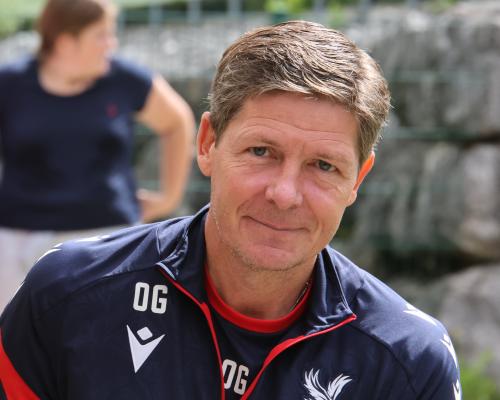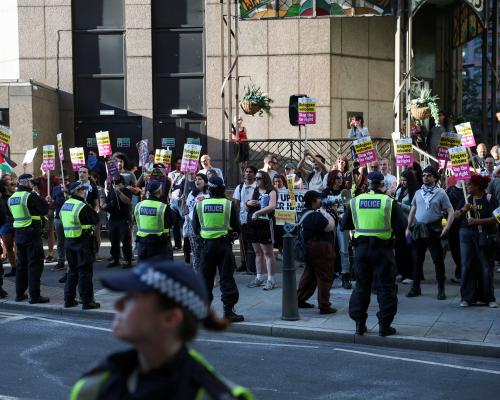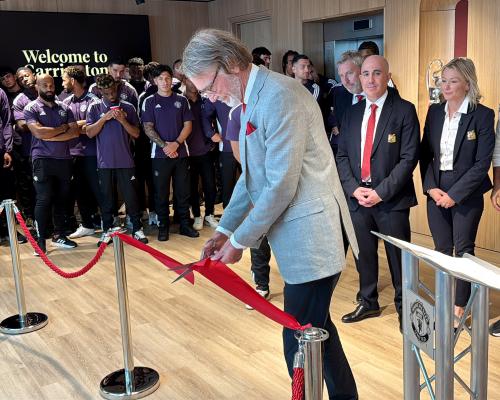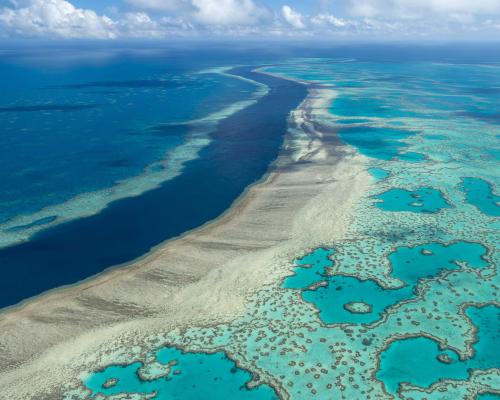
While patrolling the Great Barrier Reef, Gary Singleton was struck by an eerie stillness. The Coral Sea lay flat as glass beneath a heavy, windless sky. The heat was stifling, the water a little too warm. “It was beautiful,” he says. “But I remember thinking, ‘I feel sorry for the reef.’”
That moment stayed with him. A Yirrganydji traditional owner and land and sea manager in the Cairns-Port Douglas region, Singleton has spent more than 12 years working to protect the reef – as warming seas, sediment runoff, pollution and overfishing steadily erode its resilience. Just this week a report found a record drop in live coral in two out of three sections of the reef, prompting warnings that a tipping point for the ecosystem’s future is approaching.
“My biggest fear is that we’ll lose everything,” says Singleton, whose father, Gavin Singleton Sr, was also a sea ranger. “It’s a big part of our identity. We don’t just think of the Great Barrier Reef as coral, we think of it as an entire system. A living thing.”
As traditional owners like Singleton witness the reef’s decline first-hand, some are beginning to ask a deeper question: what if the reef had the same legal rights as a person?
Around the world, rivers, forests and mountains have been recognised as legal entities under a growing legal movement known as the “rights of nature”. In the case of the Great Barrier Reef, the rights of nature model could recognise the world’s largest coral system as a legal person: an entity capable of holding rights and having those rights defended in court.
“I’ve been quite interested in the concept of recognising the reef as its own living entity,” Singleton says. “Like New Zealand, with some of the rivers and mountains being given[legal personhood] status.
“It’s about separating the politics and all that outside noise and really giving the reef the respect it deserves as its own entity, its own being.”
A living legal entity
According to Dr Michelle Maloney, a lawyer and co-founder of the Australian Earth Laws Alliance, rights of nature laws could profoundly improve Australia’s environmental governance system.
“Australian law, like most western legal systems, treats nature as human property: a collection of objects to be used, exploited or protected,” she says. “In contrast, Aboriginal legal systems, some of the oldest continuous legal systems in the world, have always seen nature as alive. We have a lot to learn from Aboriginal law.”
-
Sign up for a weekly email featuring our best reads
Rights of nature encompasses different approaches to trying to extend new rights or protections to nature, through granting ecosystems or natural objects status as legal persons or living entities. Legal personhood is a legal construct that grants legal rights to entities. Living entity is a term that recognises something is in fact alive, not just an object, but being granted this status doesn’t create a legal right.
Maloney believes that granting the reef legal personhood could be relatively straightforward, if the political will were there. “In theory, the government could pass a law that says the Great Barrier Reef is a legal entity and has rights to exist, thrive, evolve and continue its vital cycles,” she says “And there are a number of different ways such a law could be implemented.”
Under one model, guardians – including traditional owners and other stakeholders – would be appointed to act on the reef’s behalf. “It would mean a process that made sure all of the different First Nations people up and down the reef system could be guardians for their land and sea country.” she says.
Maloney says this systemic change isn’t just a tool for symbolism but for action: “Let’s say a container ship leaked oil. The reef’s guardians could sue the company for damages on behalf of the reef. Guardians could also have a stronger voice in future planning to reduce activities that damage the reef.”
The legal personhood model appeals to Victor Bulma, a Mandingalbay Yidinji man and marine park inspector who lives in Yarrabah, just south of Cairns. “I would definitely support it,” he says. “It is a great idea to give us some sort of rights and stuff. But yeah, that’d be a big hill to climb.”
He has witnessed significant changes to the reef over his lifetime. But it’s the changes to the coral he finds most alarming. “Back when I was younger the reef was very, very colourful,” he says. “It was paradise. Global warming plays a big part in the damage of it. Some parts of the reef are just grey.”
Maloney believes legal personhood could give guardians like Bulma greater power to defend the reef from climate change. “It’s not just the elephant in the room, it’s the elephant starting to crush us all,” she says. “And we have a government that refuses to take it seriously and denies any duty of care.”
She points to the federal court ruling in the Pabai case, which found the government has no duty of care to Torres Strait Islanders on climate change, as evidence of the system’s failure. “I’d like to think legal personhood would change things for the better. Because if the law says its guardians have a right to do all they can to protect the reef, then they should be able to force real change.”
Internationally, the rights of nature movement is gaining momentum. Ecuador became the first country to enshrine the rights of nature in its constitution in 2008; since then, dozens of successful court cases have been brought on behalf of ecosystems. In Australia, Victoria passed legislation in 2017 recognising the Yarra River as a living entity, acknowledging its ecological value and cultural significance to the Wurundjeri people.
While New Zealand’s Whanganui River was granted legal personhood as part of a Treaty of Waitangi settlement, the path is more complex in Australia. “There are no treaties between First Nations people and the British or Australian governments, and Aboriginal people have fewer triggers in the law to insist on their rights,” Maloney says. “That makes it a little harder. Not impossible, but harder.”
A song in need of protection
For Singleton, who spends his days restoring coral and seagrass, monitoring marine life and planting trees along the coastline, the need to protect the reef is undeniable. “The thing is, the reef’s threats are cumulative … you can’t single out one thing,” he says. “The entire ecosystem needs protecting. Our elders have always seen the reef holistically.”
He hopes the concept of legal personhood can help reframe public thinking, not just about damage, but about responsibility. “As people, we are benefiting from the reef – socially, economically and culturally,” he says. “But how does the reef benefit?”
This year Singleton and Bulma joined a campaign to nominate the Great Barrier Reef for a UN lifetime achievement award; the first time a non-human entity has been put forward. The honour has previously recognised individuals such as Sir David Attenborough.
In July the reef received a less celebratory distinction: the UN warned it could soon be added to the world heritage “in danger” list, citing mounting threats from climate change and pollution. The Australian government has until early 2026 to show progress – or risk the reef’s heritage status being downgraded.
Singleton admits he initially questioned the intent behind the UN nomination. “I did hear a comment somewhere about whether this was a media stunt,” he says. “But I do think there is some genuine respect in there. It would be good to have more people speaking across the whole reef, to strengthen that voice.”
That voice, he says, has always existed, if only we would listen. “In our language, we call the reef Yurrbinji, which means ‘song’. I’ve always thought, if the reef had a voice, it would sing.”
Bulma shares that hope, especially for future generations. “It’s for our kids and grandkids. We’ve got to protect the reef, so they can see what we saw and feel that same connection.”
“We need to put this more on a global level,” he adds. “I’ll cross my fingers for that.”

